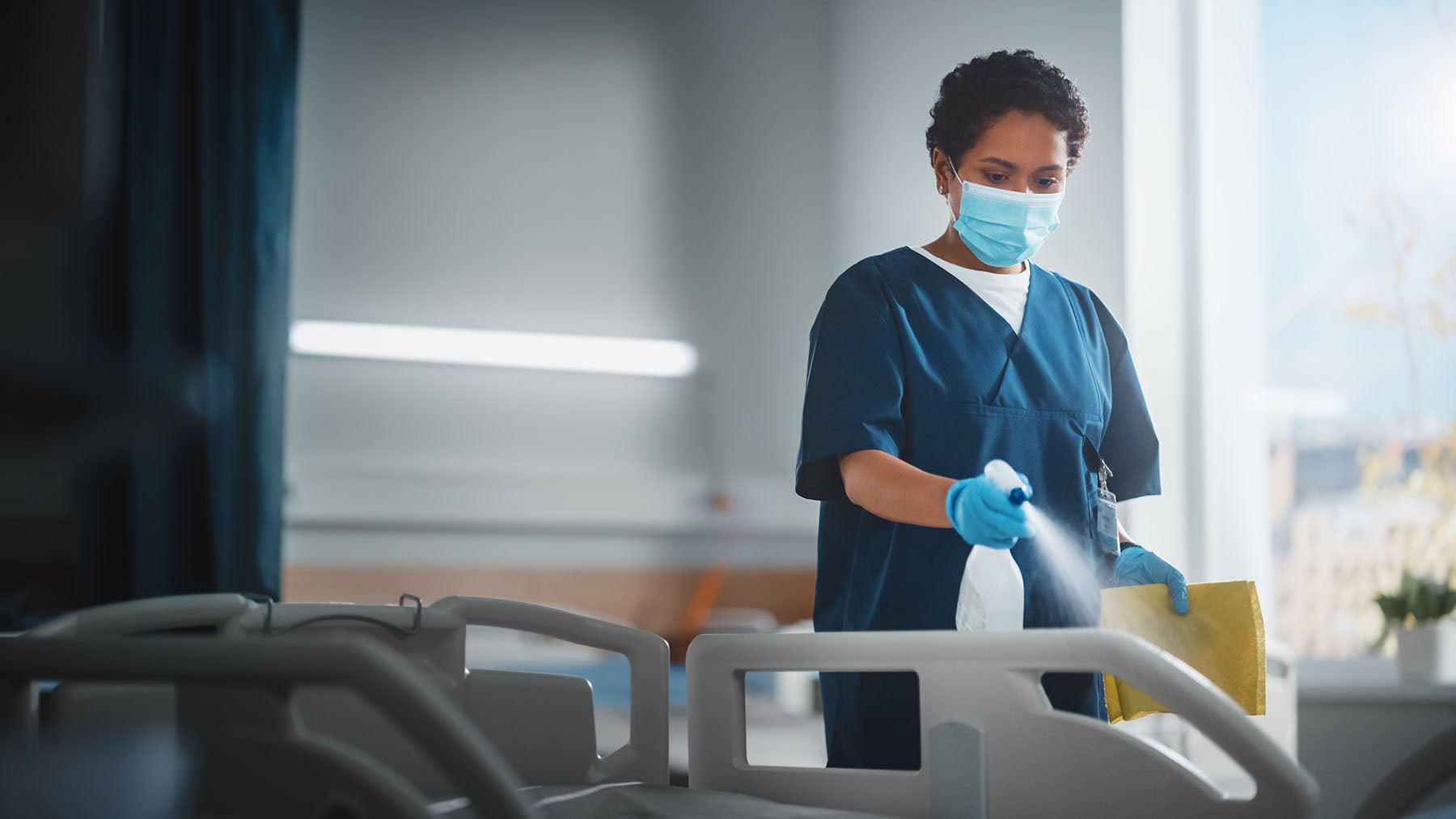
How to Reduce the Use of Chemicals When Cleaning
India’s Cleaning Chemicals market is valued at over $2B (USD) and rising. Similarly, the US uses over 2.8 million tonnes (6.2 billion pounds) of chemicals every year to clean commercial buildings.
Cleaning chemicals are essential in housekeeping services. However, pursuing health and environmental sustainability highlights the potential dangers these chemicals pose to workers and the environment.
Reducing the use of chemicals in cleaning fosters safer workplaces and promotes environmental sustainability and economic efficiency. We’ve outlined how your housekeepers and wider team can reduce chemical use in cleaning while maintaining a high quality of service.
The Benefits of Reducing Chemical Use
Safety Benefits
Reducing the use of harsh chemicals lessens the potential health risks posed to both cleaning professionals and the occupants of the spaces being cleaned.
Some cleaning products contain chemicals that can cause health issues like respiratory irritation, allergic reactions, and in severe cases, organ damage. Curtailing the use of these chemicals creates safer working conditions for professionals and healthier living and working environments for everyone.
Environmental Benefits
The environmental benefits are substantial. When improperly discarded, cleaning chemicals can seep into soil and water systems, causing long-term ecological harm.
The production processes for these chemicals often contribute to air and water pollution. Reducing reliance on these substances helps protect the planet and safeguards natural resources for future generations.
Cost Benefits
Depending on the size of the business, cleaning chemicals can cost hundreds of dollars every month. By strategically decreasing the usage of cleaning chemicals, professional cleaning services can reduce operational costs.
Eco-friendly alternatives are often cheaper than traditional chemical cleaners, while implementing more efficient cleaning practices will require less product overall. Using fewer chemicals reduces the risk of health-related incidents and can translate into decreased liabilities and insurance costs.
Practical Strategies to Reduce Chemical Use When Cleaning
Embrace Green Cleaning Products
The market for environmentally-friendly cleaning products has expanded significantly in recent years. These products contain fewer harmful ingredients than their traditional counterparts but are just as effective when used correctly. Look out for labels such as ‘biodegradable’, ‘non-toxic’, or ‘plant-based’ - these indicate their gentler impact on humans and the environment.
Consider Concentrated Solutions
Concentrated cleaning products are designed to be diluted with water before use. This gives the user more control over the strength of their cleaning product. More efficient packaging reduces waste, making them a more eco-friendly option.
Since these products are diluted with water, they also offer a cost advantage by providing more cleaning solution per package.
Use Microfiber Cloths
Microfiber cloths and mops can effectively capture dirt without additional chemicals. While they can’t replace thorough cleaning (such as sterilising surfaces), a dampened microfiber cloth is a good choice for quick tasks.
Adopt Steam Cleaning
Steam cleaning is another method that reduces the need for chemicals. High-temperature steam effectively kills bacteria, viruses, and other pathogens, making it an excellent option for sanitising surfaces.
Use Proper Cleaning Techniques
Proper cleaning techniques can greatly reduce the need for extra chemicals. For instance, pre-soaking heavily soiled items loosens dirt and stains, making them easier to clean with less detergent.
Disclaimer
Cleaning professionals must always use and (where applicable) dilute chemicals correctly, as stated in the instructions by the product manufacturer. This ensures that cleaning products are effective at removing dirt, grime and bacteria.
Explore Our Range
Our products are specially formulated to help housekeepers deliver a perfect clean every time.
Ready for a superior clean?

